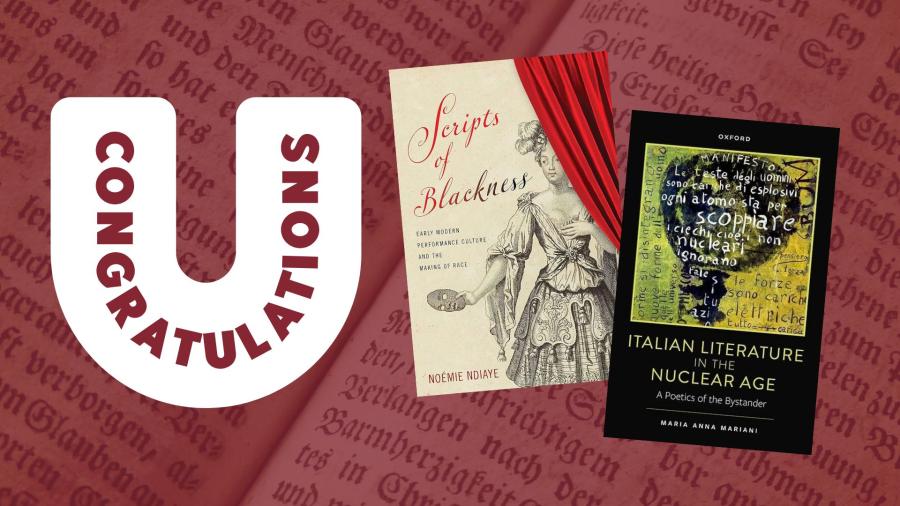We are delighted to share that two Romance Languages & Literatures faculty members will be recognized by the Modern Language Association on January 5, 2024. Associate Professor Noémie Ndiaye and Assistant Professor Maria Anna Mariani will each accept a prize for their recently published books.
Noémie Ndiaye will be awarded the 31st annual Aldo and Jeanne Scaglione Prize for Comparative Literary Studies. Her award-winning 2022 book is entitled Scripts of Blackness: Early Modern Performance Culture and the Making of Race. The book has earned numerous awards since its publication.
In her own words: "I show how performance culture helped strategically turn blackness into a racial category across early modern Western Europe, and I dissect the stagecraft used in early modern theater to represent and racialize Africans and Afro-descendants across borders in early modern England, France, and Spain. At the end of the sixteenth century, in a context of global expansion, the racial matrix produced a new paradigm: the word race started referring to phenotypical differences for which skin color quickly became a shorthand. Scripts of Blackness explores how that long-reaching epistemological shift was brought about, how it slowly infiltrated people’s everyday reading of human bodies, and how the racialization of blackness was absorbed into early modern European popular cultures."
Maria Anna Mariani will be awarded the 12th annual Aldo and Jeanne Scaglione Prize for Italian Studies, for her 2023 book Italian Literature in the Nuclear Age: A Poetics of the Bystander.
In her own words: "The book explores the overlooked position of the bystander in the Nuclear Age by focusing on the Italian situation as a paradigmatic case. Host to hundreds of American atomic weapons while lacking a nuclear arsenal of its own, Italy’s status was an ambiguous one: that of an unwilling—and in many ways passive—accomplice. Inspired by Seamus Heaney's dictum that “there is no such thing as innocent by-standing,” the book frames Italy’s fraught mix of implication and powerlessness not only as a geopolitical question, but as a way to rethink the role of the sidelined intellectual in the face of mass extinction. Italy and the Bomb includes discrete chapters on the major Italian intellectuals of the time: Italo Calvino, Alberto Moravia, Elsa Morante, Pier Paolo Pasolini, and Leonardo Sciascia. Conscious of their own political marginalization, these authors address the atomic question through a wide range of experimental forms, approaching the nearly unthinkable theme in allusive and oblique ways. Often dismissed as disengaged, inconsistent, or merely playful, these works demand instead a political reading capable of recognizing their confrontation with the paradoxes of the nuclear age."

